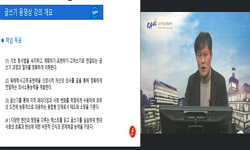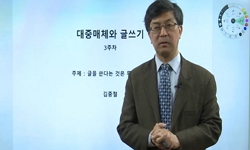최서해는 절박한 빈궁체험을 소설적으로 형상화하여 1920년대 한반도 문단에 상당한 충격을 준 작가로서, 그의 작품은 오늘 한국문학사에서 당대 식민지 현실을 리얼하게 보여준 것으로 평...
http://chineseinput.net/에서 pinyin(병음)방식으로 중국어를 변환할 수 있습니다.
변환된 중국어를 복사하여 사용하시면 됩니다.
- 中文 을 입력하시려면 zhongwen을 입력하시고 space를누르시면됩니다.
- 北京 을 입력하시려면 beijing을 입력하시고 space를 누르시면 됩니다.
부가정보
국문 초록 (Abstract)
최서해는 절박한 빈궁체험을 소설적으로 형상화하여 1920년대 한반도 문단에 상당한 충격을 준 작가로서, 그의 작품은 오늘 한국문학사에서 당대 식민지 현실을 리얼하게 보여준 것으로 평가되고 있다. 본 논문은 최서해의 대표작이자 자전적 소설로 알려진 두 편의 서간체소설 <탈출기>와 <전아사>에 대하여 문체 분석을 하였다. 빈궁으로부터의 ‘탈출’을 담론적 주제로 한 두 작품은 서간체라는 소설적 형식을 빌어 식민지 시대를 살아가는 주인공-하층민과 지식인-의 빈궁한 삶을 신빙성 있게 그려내고 그들의 부동한 ‘탈출’의 방향을 제시하고 있다. 즉 빈궁에서 ‘탈출’하기 위하여, 전자가 정치투쟁의 길로 나아가는 데 비하여 후자는 농촌에서 근대적 도시로 진출하여 개인분투의 길을 선택하고 있다. 두 작품의 담론적 주제와 서간체는 작가의 독자적인 문체적 전략에 의하여 유기적으로 결합되면서 텍스트에 생명력을 부여하고 있다. 우선 두 작품은 도입부에서 우월한 위치를 확립한 1인칭 화자의 역할로 하여 호명과 톤 및 수사법과 직접화법 등에 의한 호소와 의론의 문법이 구사됨으로써 가난체험으로부터 오는 주인공의 내면의 고통을 절절하게 호소하고 의론을 통하여 확고한 신념을 제시했다. 화자는 이러한 문법을 바탕으로 하여 수신자를 상대로 한 ‘대화적 서술’을 진행함으로써 주인공의 가정으로부터의 ‘탈출’을 정당화하고 있다. 그들의 ‘탈출’이 궁극적으로 하나는 계급해방 내지 민족해방을 위한 것으로, 다른 하나는 근대적 주체의 확립을 위한 것으로 그 의미가 확대되고 있어 주목된다. 한마디로 최서해는 두 작품을 통하여 하층민과 지식인의 현실 대응의 부동한 자세에 대하여 사실적으로 보여주고 그들의 가출 행동을 정당화함으로써, 궁핍으로부터의 ‘탈출’을 지향한 글쓰기 특성을 제시하고 있다.
다국어 초록 (Multilingual Abstract)
Choi Su-Hae shaped his experience of destitution in a novel, greatly affecting Korean Literary World in 1920s. His works are still being respected by most of the Korean literary men that they expressed the situation of the day under Japanese colony as...
Choi Su-Hae shaped his experience of destitution in a novel, greatly affecting Korean Literary World in 1920s. His works are still being respected by most of the Korean literary men that they expressed the situation of the day under Japanese colony as what it really was. This dissertation analyzed the literary styles of Choi Su-Hae’s(崔曙海) two epistolary novels, <An account of escape(탈출기)>(1925) and <A farewell and welcome speech(전아사)>(1927), known as his autobiographies. These two novels with a common discourse topic of ‘Escape’ employed the epistolary style among novel styles to depict how the main characters-an unwashed and an intellect-suffers from the destitution under Japanese colony in the most trustworthy way and propose the way how to extricate out of the destitution ahead of them. The former chooses a group struggle to take part in a political campaign while the latter chooses an individual struggle after he advances into a modern city. The discourse topic and epistolary style are organically compounded by the writer’s own literary style strategy to infuse life into the text. First of all, both works have a unique narration strategy based on name-calling, postposition rhythm, rhetoric, and direct narration to appeal the main characters’ internal pain from the extreme poverty with a sincerity. The talker as the first person develops a dialogic statement against the listener, backed by the above narration strategy to justify their runway from home. Their ‘escape’ ends up with class or national independence or firm establishment of modern identity. Such an expansion of the meaning is being watched with kin interest. In brief, both of the two novels showed the unwashed and intellectual’s immobile attitude to confront with the reality and justify their runaway from home in order to reveal the essence of Choi Su-Hae’s writing focused on the escape from destitution.
목차 (Table of Contents)
- 국문요약
- 1. 서론
- 2. 화자의 역할 및 호소와 의론의 문법
- 3. ‘대화적 서술’에 의한 ‘탈출’의 정당화
- 4. 결론
- 국문요약
- 1. 서론
- 2. 화자의 역할 및 호소와 의론의 문법
- 3. ‘대화적 서술’에 의한 ‘탈출’의 정당화
- 4. 결론
- 참고문헌
- Abstract
동일학술지(권/호) 다른 논문
-
- 한중인문학회
- 김택호
- 2009
- KCI등재
-
리비도 충동의 역동성 -초현실주의, 이상의 소설 <지주회시>-
- 한중인문학회
- 서복희
- 2009
- KCI등재
-
- 한중인문학회
- 최형용
- 2009
- KCI등재
-
- 한중인문학회
- 김현
- 2009
- KCI등재





 RISS
RISS eArticle
eArticle







